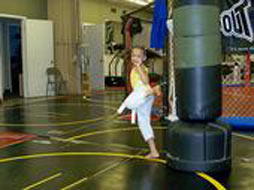By Season Weeter/reporter

It is dark outside, and the campus parking lot is nearly empty when a college student walks briskly through the parking lot fumbling for her keys less than a 100 yards from her vehicle.
A cold chill runs down her spine as she uneasily becomes aware someone is between her and her car.
Several scenarios could fill in for the ending to this story, but the attacker is more likely not a stranger.
Suppose the potential attacker is an ex-boyfriend of the student.
Would the situation prove to feel less dangerous to the young woman?
Statistics show that more than 50 percent of rape assault victims are attacked not by strangers but by intimates or once intimate partners.
Sgt. Anthony Woolum, NE campus police department, said the last sexual assault to occur on NE Campus was three years ago.
“It was a case of ‘stranger’ rape assault, but it is very rare that the attacker is a stranger to the victim,” he said.
After reporting this rape assault incident to the Hurst Police Department for investigation, Woolum was told it was the first of 60 reports in Hurst where the attacker was a stranger.
“Crimes against people occur more frequently on NE Campus than on the other four campuses, but crime happens on all campuses,” he said.
“Reported sexual assault cases occur more often than people think, and that doesn’t even count the assaults that go unreported,” he said.
The best ending to the beginning story might report that the young woman had total control of the situation because of the self-defense training she received in her martial arts class.
That training could have allowed her to defend herself and get away.
College campuses in the DFW area have not reported an alarming number of assaults, but many campuses are actively providing rape assault awareness programs.
A UTA police officer said he took martial arts for exercise and recreation and believes all martial arts are good for self-defense. His recommendation would be tae kwon do.
Knowledge of self-defense is considered the number one benefit of learning a martial art, but many more benefits should be considered.
Other motivations to train include better health and overall fitness in areas of strength, balance, coordination and self-control.
Studies show that martial arts training benefits people of all ages, and the discipline learned by students carries over into other areas of life.
Confidence is dramatically increased, especially in children, as a result of martial arts training.
Master Samuel T. Robertson IV, martial arts instructor at American Institute of Korean Martial Arts, said, “Good safety awareness and practical self-defense equal desirable results under undesirable circumstances.”
Master Robertson, who holds black belts in eight different disciplines of martial arts, trains children as young as 4 in tae kwon do, women’s and girl’s self-defense, weapons defense, hapkido and several other disciplines.
At AIOKMA, people are taught the mind is the most powerful weapon.
Academic achievement is highly encouraged and rewarded by martial art instructors.
Such achievement is considered very beneficial to students of all ages because of the skills and discipline acquired in training.
A key benefit of martial arts training for parents to note is that children will become more disciplined in general from the distinctive formalities of martial arts classes.
The formality of martial arts is one benefit that other sports and activities do not have.
Former problem kids with bad attitudes may become better behaved and respectful to others as a result of taking martial arts training, Robertson believes.
Leigh Bietrich, defensive tactic instructor for TCC district police department, suggests any defense training method is good and everyone should “take something.”
AIOKMA will sponsor a women’s self-defense seminar soon. For more information or to register, contact Robertson at 817-784-KICK.
TCC provides students with periodic rape awareness seminars that provide tactics to stay out of harm’s way.
For more information, call 817-515-7723.

























